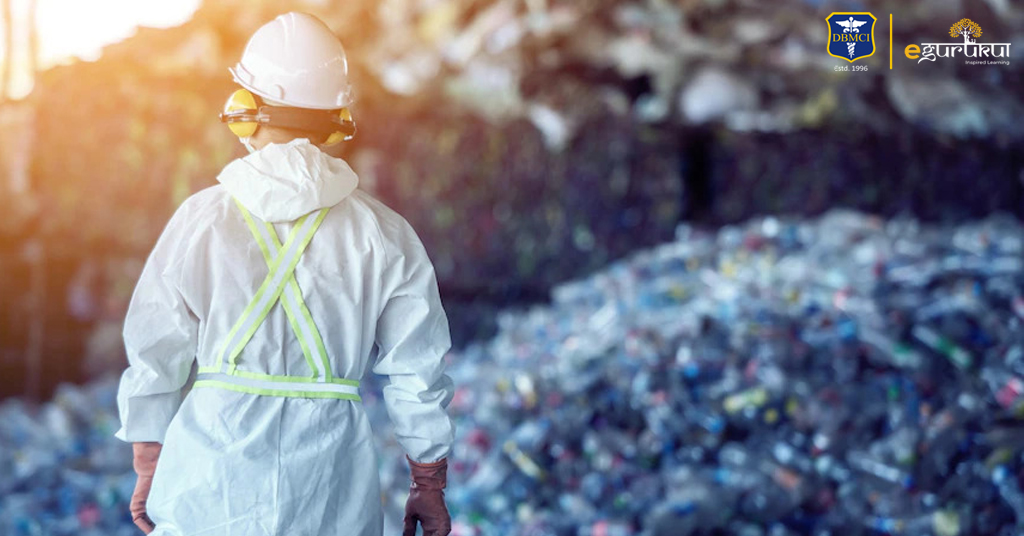How To Safely Dispose Of Medication?

While dealing with day-to-day activities like taking care of our family members, we often forget about the medicines piling up in our house. We must check whether the medicines are useful or not. Some of these medications might not be useful anymore due to various reasons. You must dispose of them before someone consumes them by accident or your children and pets mishandle them.
Always store medicines in concealed places to keep them away from the reach of pets and children. For instance, you can lock them in a kitchen cabinet or closet. And storing them in a cool and dry place is required to maintain their condition and effectiveness for a longer duration. Even so, there might be some unwanted, expired, or unlabelled medicines in your closet that you might want to get rid of. It is always safe to dispose of these medications. However, while you may think it is safe to dispose of unwanted pills and syrups in the usual garbage bins, you never know how it might expose them to animals that may feed on them. Remember that these medications can be dangerous to both humans and animals. Here are some safe ways to dispose of the medication:
1. Check with the Pollution Control Board
Unlike in the USA where many businesses have tied up with the DEA (Drug Enforcement Administration) to dump old and unwanted medicines, there is no government body that monitors the disposal of expired and unused medicines in India. You can follow the guidelines of the Pollution Control Board in the country to dispose of the medication safely. These rules and guidelines provide proper instructions to dispose of syringes, pills, syrups, inhalers, and other medications without any risks.
2. Donating Medicines
Some medicines are left unused after the prescribed course by the doctor. As you cannot use them later, a good idea would be to donate them instead of disposing of them. However, you must check the expiry dates of such medications before donating them to an NGO or social worker who helps them reach the people who need them. There are several NGOs, clinics, and hospitals in India where you can donate unused medicines. These medicines can prove to be life-saving for adults and kids living in slums who cannot afford them.
3. Flush medications
Medications that do not have any label, instructions, or name should be disposed of immediately. Also, if they are damaged, or you don’t intend to use them in the future, the best thing would be to dump them in a safe place. However, sometimes, you might not have the time or resources to take them to a drug collection facility. You may also flush them down a toilet or sink during such emergencies. In most apartments and societies, the sewage from the toilet directly reaches the septic tank. Therefore, no animal or bird will feed on them.
This might not be the case in slums, villages, and many other regions where proper drainage facilities are not in place yet. Therefore, before flushing the medications, remember the place where the flushed medicines can reach. You should never dispose of them in a lake, river, or an open-source of water that can be used for drinking by both humans and animals. Also, some medications need to be flushed without wasting any time as they might create a nuisance in the future. For example, a rectal gel containing diazepam needs to be flushed immediately along with the medications that contain the following words in their labels or ingredients:
- Morphine
- Tapentadol
- Fentanyl
- Buprenorphine
- Methadone
- Oxycodone
- Hydrocodone
- Sodium Oxybate
3. Dump them in the trash
If you are not sure about flushing an unwanted medication, it is better to dump it in a trash can or bag. However, ensure that the garbage gets disposed of at proper facilities and is not dumped in the open. It will prevent the animals and birds from feasting on them.
Also, you must not crush the medicines and mix them with other unwanted items like garbage, dirt, etc. By doing so, you will increase the chances of them getting mixed with soil or coming in contact with water sources.
If the medicine is cough syrup or any other liquid, you must close the bottle tightly and avoid pouring it over the garbage can.
4. Disposing of syringes and needles
If you have used insulin syringes or injection needles at your home, you must get rid of them safely. They may cause cuts or incisions if your kids or pets try to handle them. Before disposing of the syringes and needles in garbage bins, remove the needles and place the syringes in a plastic bag.
While travelling, store them in an airtight pouch and carry them safely in a handbag. You can dispose of unwanted needles and syringes, and other medications in the hospital garbage bins after taking their permission. However, before dumping them in the hospital dust bins, ensure that the hospital follows safe disposal procedures. If there is a plastic recycling plant or industry nearby, you can give the syringes to them after removing the needles.
Some tips for appropriately disposing of medication
Here are some other useful tips that can help you dispose of unwanted pills, syringes, and medicines properly:
- Erase or take off the labels from the medication.
- Remove your name or any other personal information present on the medication bottle or container. If you are dumping the prescription note along with the medication, ensure that the details are unreadable by marking them with a pen or paint.
- If there are pills inside the bottle, fasten the lid tightly.
- If there is a solid waste initiative running nearby, you can dump your medicines there. Or else, you can also dispose of your medication in the take-back initiatives adopted by the pharmacy industries and companies.
FAQs
1. How to dispose of medication properly?
Place the unwanted medicines in a ziplock plastic bag or sealable container and dump them in the trash bag. There are certain trash bags that facilitate the correct method for the disposal of medicines. Therefore, you should only use them.
2. Why shouldn’t multiple medicines be mixed before dumping them?
Don’t mix multiple medicines or tablets as they might contain ingredients that can react and cause a nuisance.
3. When to flush the medication?
Flush the medications only when instructed by the doctor. There isn’t any flush list in India that tells you which medicines to flush and which do not. Also, sewage management in India is not proper in most places. Therefore, it would be better to dump them in the bins of garbage collectors or to hand them over to waste collectors who take care of the unwanted medicines of clinics and hospitals.
4. Where should I store my medicines?
Store the medicines in a kitchen cabinet or closet that is high enough so that children and pets cannot access them at all.
5. How should you dispose of inhalers?
Inhalers and aerosols need to be dumped with caution. It is because they might come in contact with inflammable substances and cause explosions. It is recommended that the inhalers and aerosols be disposed of by taking guidance from local recycling centers. You may also return them to the pharmacist from whom you have bought them.


